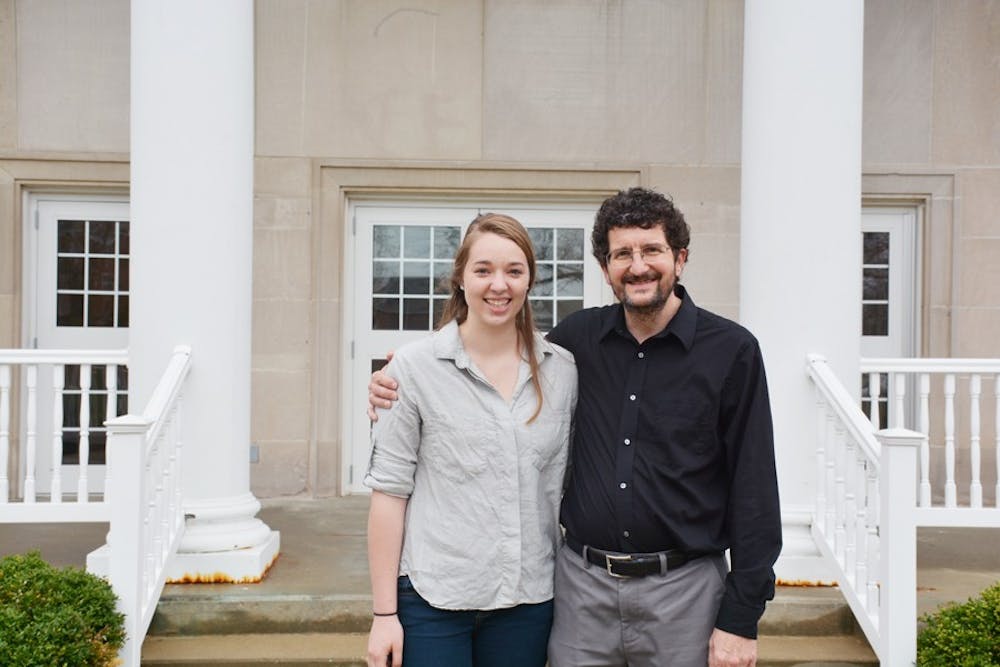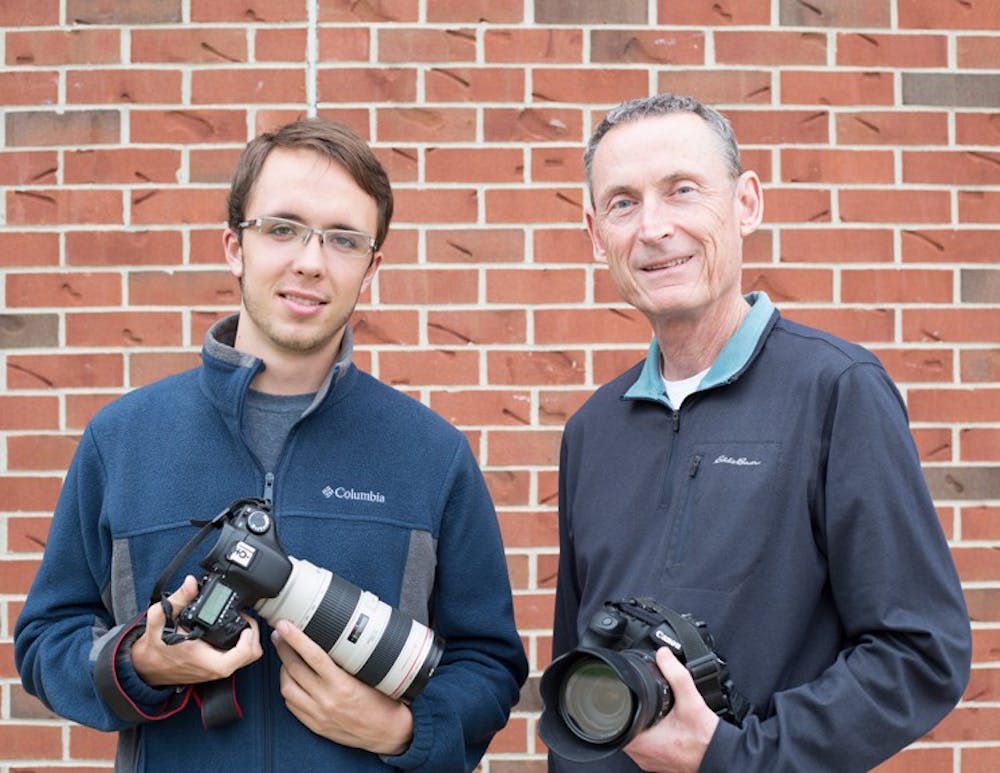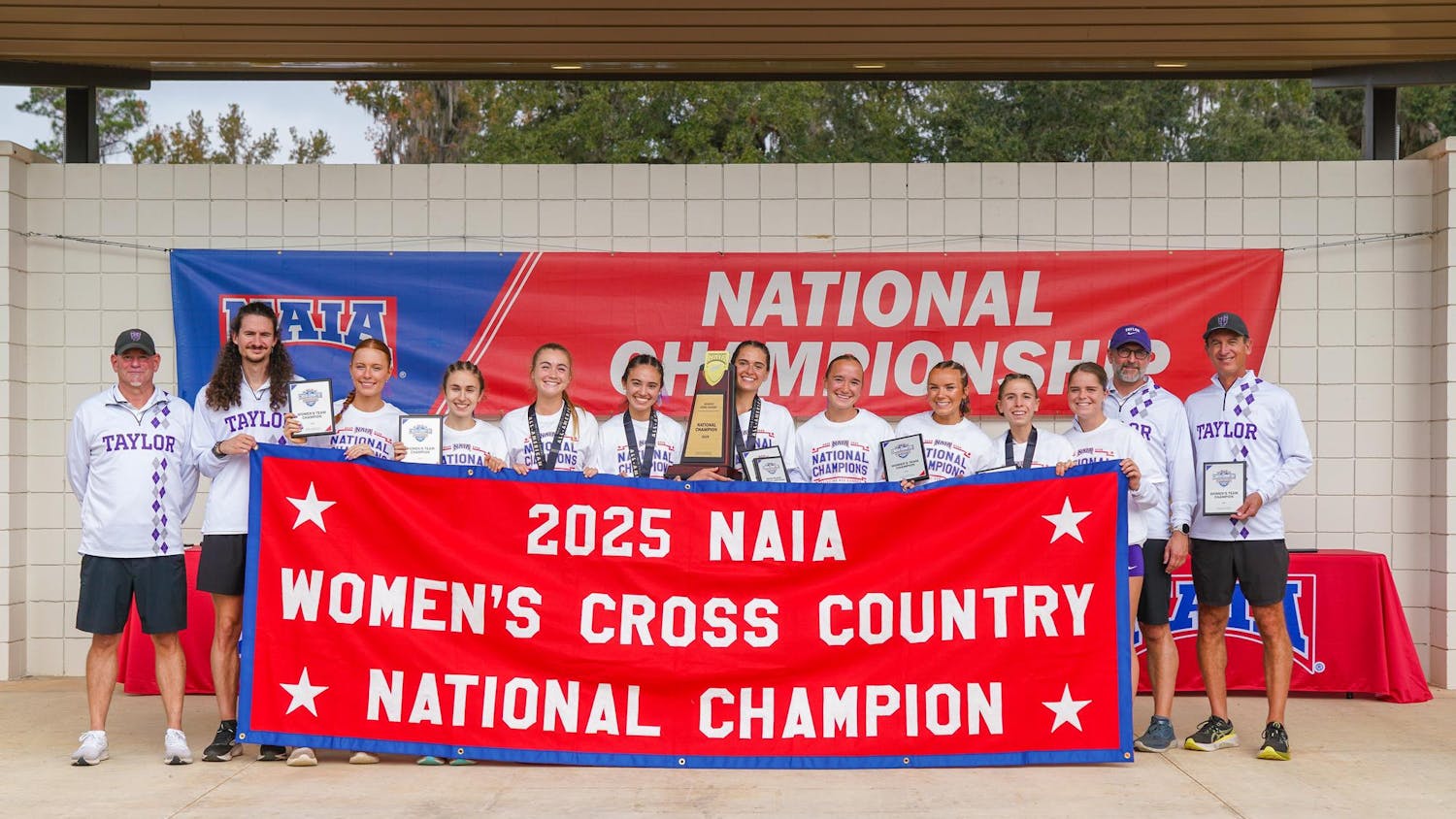
By: Ally Horine | Echo
When students first hear about summer research projects, they probably don't think about doing photo projects or studying the effects of internal motivation. Through recent funding, research projects are expanding their definition to include a broader span of majors and topics.
Several Taylor departments will introduce a new type of research scholarship program this summer. Faculty Mentored Undergraduate Summer Scholarships, or FMUSS, are research-based scholarship programs where students spend time on campus during the summer months to participate in research projects under the direction of a faculty member.
Grants for this type of research generally come from the Women's Giving Circle, the Lilly Foundation, Science Research Training Program and the National Science Foundation. As a result, science students were the primary participants in these projects in the past. Due to recent funding from the Provost's office, however, the door has opened for other majors to participate in their own research.
Sophomore Logan Evans is one of many students taking advantage of this opportunity. He and Mike Saunier, assistant professor of Media Communication, are travelling along Indiana Highway 1 to create a photo story. This highway begins near Lawrenceburg and ends just six miles east of Angola. In their account, "Life Along Highway 1 in Indiana," they hope to capture and publish the narratives of the people they meet along the way.
"I got this idea after attending a conference a few years ago where one of the sessions talked about a similar concept in another state," Saunier said. "I am really excited to work with Logan on this project and to meet people with interesting stories along the way."
The duo plan on mapping their route later this month. They plan on taking three to four weeks to complete the photography portion of the assignment. After the photography is completed, they will collaborate to edit the photos and design the book.
"I'm really excited about this project," Evans said. "I hope it communicates the diversity of stories in our own communities, as well as the hidden beauty that we tend to just drive by."
The team hopes their book is enjoyed by not just the Taylor community, but others in Indiana as well.
"I hope this will be an interesting collection of photos and stories from a unique, short-term adventure," Saunier said. "I want to communicate that stories exist all around us. This project allows us to find some of those stories that are in this part of Indiana."
The psychology department is also taking advantage of this opportunity. Psychology professor Steve Snyder and assistant professor of kinesiology Erik Hayes are working with a small team researching ways to increase intrinsic motivation in students.
For the purpose of the project, intrinsic motivation is defined as "behavior undertaken for its own sake, for the enjoyment it provides, the learning it permits or the feelings of accomplishment it evokes." The goal of their research is to increase intrinsic motivation in academics and exercise patterns through motivational strategies.
Research for the project took place during the fall semester and included subjects from introductory psychology classes. These students were assigned to groups of six or seven with a trained mentor. Each session included a discussion about motivation and how to find motivation from within. Mentors were strongly encouraged not to employ extrinsic motivational strategies such as focusing the subject on their grades or what their professors would think of them.
"I'm excited to see how all the different pieces that multiple people have been working on come together to form our results," sophomore summer research intern Rachel General said. "For example, we have three different types of intrinsic motivation we are studying: students, professors and in exercise. I have been involved in the research focused on students, but this summer I will get to experience personal fitness training with the constructs our research team has created."
These are just two of 13 teams funded for research this summer, others fall in the departments of Writing, Chemistry Philosophy, Sociology among others. According to Director of the Office of Sponsored Programs Sue Gavin, the number of teams each year fluctuates, with some years only having seven or eight teams. The number of teams outside of the sciences is higher this year than it has ever been.
"I feel that this project will be very beneficial for my future," said junior summer research intern Courtney Thompson. "I intend to attend graduate school directly after college. Getting in as much research opportunities that I can will be beneficial for the path that I would like to take will definitely be applicable for my future."





